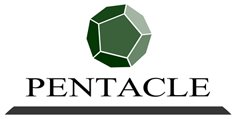But being lucky in generating ideas is not enough. Even a 'killer idea' is at risk of getting killed by the people across the organisation. Why? Because it was not-invented-here, because it means change, because they don't like the sound of it because they are human beings, because the senior management are cynical and won't support it, because the 'killer idea’ originated with a client need and there is no obvious part of the organisation which knows what to do with it, because executing an innovation project which is not completely locked-down doesn't work with the stage-gate or project management process, because we can't create the business case, because.... and the list continues. So they often react negatively against it and jump on it and block it doing their best to 'kill it'.
So unless the organisation is very, very lucky - so lucky in generating ideas and so lucky in having people who not only let the idea pass but actually work on it to realise it the goal of 'Generating more innovation' - it simply does not come to life.
 Imagine if instead of ‘hoping for luck’ we found out the places and things which caused the demise and death of all the 'unlucky' ideas. And imagine if we could then systematically remove the causes of the 'bad luck', we would be able to generate a significant amount of innovation without first having to be lucky. This is what Allianz, one of the UK's largest and best known insurance companies has done. Using the Pentacle R.A.B.B.I.T. Model, the Strategic Innovation Unit led by Jeremy Trott and sponsored by Philip Gennoy have transformed the delivery of innovation at all levels, from micro team-based opportunities to company changing strategic challenges.
Imagine if instead of ‘hoping for luck’ we found out the places and things which caused the demise and death of all the 'unlucky' ideas. And imagine if we could then systematically remove the causes of the 'bad luck', we would be able to generate a significant amount of innovation without first having to be lucky. This is what Allianz, one of the UK's largest and best known insurance companies has done. Using the Pentacle R.A.B.B.I.T. Model, the Strategic Innovation Unit led by Jeremy Trott and sponsored by Philip Gennoy have transformed the delivery of innovation at all levels, from micro team-based opportunities to company changing strategic challenges.Recently, David Lomas has joined the Pentacle team of Eddie Obeng, Christophe Gillet and Colin Burns who worked with Allianz at the inception of its i2s programme. David has been working with Jeremy and his team to develop Version 2.0 of the successful programme which has generated amazingly large numbers of new innovations and more importantly significant financial returns for Allianz.
So the choice is up to you. You can continue to be 'one of the herd', a typical organisation that approaches innovation-by-the numbers, hoping to get lucky. Or realise that you can systematically innovate for real returns with out having to be lucky at all.
.svg/2000px-My_Wife_and_My_Mother-In-Law_(Hill).svg.png)




